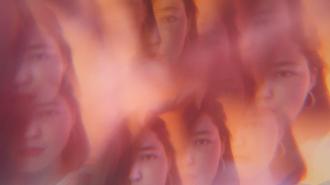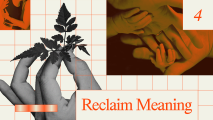In the mid-20th century, scientific research suggested that psychedelic drugs could be beneficial in the treatment of alcoholism and psychiatric disorders. Soon enough, however, LSD was outlawed in a knee-jerk response to the hippie counterculture, and studies of the therapeutic potential of psychedelics were abandoned.
Psychedelic research resumed about 30 years ago and has blossomed ever since. There are dozens of labs in leading academic institutions investigating the potential benefits of these substances, and a search for the term “psychedelic” on ClinicalTrials.gov, the U.S. National Library of Medicine’s registry of human clinical trials, produces more than 500 results.
Psychedelic renaissance
Today, we are at the peak of the so-called “psychedelic renaissance.” Psychedelics are touted as wonder drugs; Silicon valley CEOs espouse the benefits of LSD “microdosing“; various companies offer luxury psychedelic retreats in the Caribbean; and numerous startups are in the process of developing psychedelics-based pharmaceutical compounds. The psychedelics industry, which had an estimated market value of $4.9 billion in 2022, is anticipated to grow to nearly $12 billion by 2029.
The consciousness altering effects of psychedelics are well documented. Their purported therapeutic benefits may be linked to their ability to induce existential experiences, but robust evidence for these benefits is still thin on the ground. Psychedelics are also known to have negative effects, but these too are under-studied and under-reported. The evidence for “bad trips” remains largely anecdotal.
What a long strange trip it’s been
Now, new research published in the open access journal PLoS ONE provides fresh insights into the long-term difficulties that can follow a psychedelic experience, and it reveals factors that can accurately predict extended difficulties.
Jules Evans of Queen Mary University in London and his colleagues used social media, email lists, and a newsletter and newspaper advertisement to recruit 608 participants who had problems that lasted more than one day after using a psychedelic, and asked them to complete an online survey about their experience. As well as providing details about the type of drug they used and its dosage, most of the participants also provided detailed written accounts of their psychedelic trip and the difficulties they experienced afterward.
According to the results of the survey, emotional difficulties were the most common problems experienced. About two-thirds (67%) of participants reported experiencing anxiety, fear, anger, low mood or depression, paranoia, panic attacks, shame or guilt, or resurfaced trauma, among other things, after taking the psychedelic.
Social difficulties were the next most commonly reported, with just over one quarter (27%) saying that they felt a sense of disconnection from others, had difficulties communicating, or experienced social anxiety or withdrawal after their trip.
About one fifth (21%) of the participants reported experiencing perceptual problems such as visual or auditory hallucinations, “flashbacks,” or time distortions, and a slightly smaller proportion (18%) of them reported cognitive problems such as difficulty thinking clearly or concentrating, intrusive thoughts, forgetfulness, or difficulty making decisions.
For about one-third of those surveyed, the difficulties persisted for more than one year. For one-sixth, they persisted for more than three years after the psychedelic experience. The survey results showed that the more challenging a psychedelic experience was, the longer the negative effects lasted, and that taking a psychedelic in an unpredictable or unguided setting was associated with a wider range of negative effects. They also show that psilocybin and LSD are more frequently associated with long-term difficulties, but the authors suggest that this may be because they are more readily available than other psychedelics such as ayahuasca and DMT.
Psychedelic medicine
The authors acknowledge that their results may not be universally applicable, because their respondents consisted mostly of white English speakers. Also, people in countries where psychedelics are legal, or where they are used in a cultural or religious context, could experience them differently. Nevertheless, they say their results suggest that taking psychedelics, even in a clinical setting, is not entirely risk-free.
This article was reprinted with permission of Big Think, where it was originally published.






